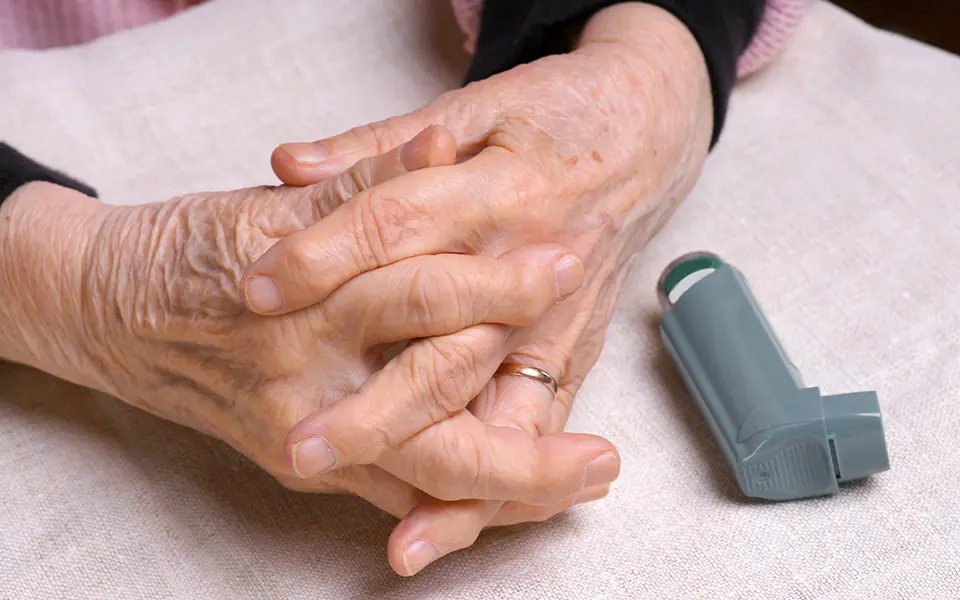December 6, 2021
Managing Asthma During Winter
If you have asthma, you know environmental factors can cause a flare-up. Winter weather is a common asthma trigger, but planning can help you manage your symptoms and prevent breathing problems. Symptoms of Winter Asthma Winter-induced asthma has similar symptoms to normal asthma, including: Coughing, dry or with phlegm Wheezing, especially during exhalation Shortness of […]

If you have asthma, you know environmental factors can cause a flare-up. Winter weather is a common asthma trigger, but planning can help you manage your symptoms and prevent breathing problems.
Symptoms of Winter Asthma
Winter-induced asthma has similar symptoms to normal asthma, including:
- Coughing, dry or with phlegm
- Wheezing, especially during exhalation
- Shortness of breath
- Tightness in your chest
- Trouble speaking
How Cold Weather Affects Asthma
Cold air irritates airways and can cause swelling in your bronchial tubes, making it harder to get air into your lungs. The muscles in your throat may also contract when you inhale chilly air and restrict your airways.
There’s less humidity during the winter months, which dries out the mucus lining of your throat. Asthmatics have constant inflammation in their airways, so anything exacerbating the swelling may result in an asthma attack.
Seasonal Illnesses
The flu and colds can run rampant during winter. Viral-induced asthma is common in colder months because respiratory infections negatively affect breathing.
You may also tend to spend more time indoors when it’s cold outside, putting you in closer proximity to people who are sick. Combat seasonal illnesses by washing your hands with soap and water regularly and keeping your hands away from your face.
Indoor Allergens
Because you’re inside more often, you may be exposed to respiratory irritants such as dust, mold, pet dander and tobacco or wood smoke. Using your furnace also dries out the air and blows dust through vents.
Dusting and vacuuming regularly will control the amount of dirt and pet dander in your home. Change your furnace filter every three months or if it’s clogged with dust to reduce the likelihood of an asthma flare-up. Smoking is especially harmful to asthmatics, so cutting back or eliminating your tobacco use will ease your symptoms.
Protecting Your Airways
Here are some tricks to soothe your airways and manage your asthma:
- Breathe through your nose. Inhaling through the nose allows air to heat up before reaching your lungs.
- Cover your nose and mouth. Wearing a scarf over the lower half of your face while you’re outside will protect your sensitive airways from the frosty air.
- Stay inside as often as you can, especially if the temperature drops outside.
- Avoid exercising outdoors, so you don’t dry out your throat.
- If you still choose to exercise outside, start your workout indoors to warm up your airways and lungs.
- Use a humidifier to add moisture to indoor air and moisturize your airways. Be sure to change the filter regularly to avoid mold.
- Consider getting vaccinated against the flu to reduce your chances of getting sick.
- Take your prescribed asthma medication on schedule.
- Have a plan in the event of a flare-up. That may include using a fast-acting inhaled steroid to reduce bronchial inflammation.
- Talk to your doctor about long-term respiratory treatment options if you live in a consistently cold climate.
Embassy Healthcare offers comprehensive pulmonary and respiratory care at several locations in Ohio. Call 216-378-2050 or contact us online for more information.
